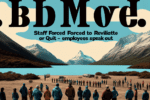Kiryat Shmona, Israel – Living under the constant threat of rockets and bombings is a reality for many residents living on the Israel-Lebanon border. For David Kamari, a resident in Kiryat Shmona, the recent Hezbollah rocket that landed in his front garden only added to the daily struggle of survival. The destruction caused by the rocket left his house in shambles, with gaping holes in the walls and debris scattered throughout.
Despite the dangers and challenges, some like David choose to remain in their homes, unwilling to abandon the land they have called home for years. The mayor of Kiryat Shmona, Avichai Stern, echoes this sentiment, emphasizing the resilience and determination of the residents in the face of ongoing attacks.
The escalating tensions between Israel and Hezbollah have raised concerns about the possibility of a full-scale war, a scenario that UN Secretary-General Antonio Guterres warns would be a “catastrophe.” Both sides, armed and prepared, are engaged in a dangerous dance of provocation and retaliation, with civilian lives hanging in the balance.
The impact of the conflict extends beyond the immediate border region, with implications for the wider Middle East. The complexities of the situation, with intertwined conflicts in Gaza and Lebanon, present a daunting challenge for Israeli leaders seeking solutions to end the cycle of violence.
As communities on both sides of the border grapple with uncertainty and fear, the specter of all-out war looms large, threatening to upend lives and livelihoods. The need for a lasting resolution becomes increasingly urgent, as the risks of continued hostilities grow.
Amidst the rubble and chaos, voices like Tom Perry’s in Malkiya call for a reevaluation of Israeli leadership and strategy. The aftermath of recent attacks has left many questioning the credibility and effectiveness of those in power, highlighting the pressing need for political change and a new approach to conflict resolution.
In the midst of this volatile environment, the hope for peace remains a distant yet essential goal. The resilience and courage of individuals like David, Avichai, and others facing the daily threat of violence serve as a stark reminder of the human cost of war and the urgent need for a sustainable path towards peace.










